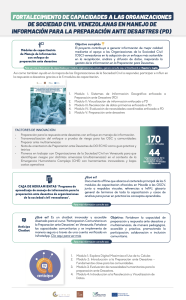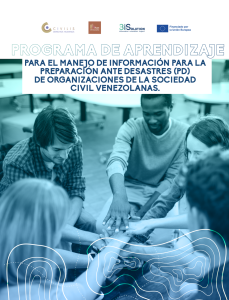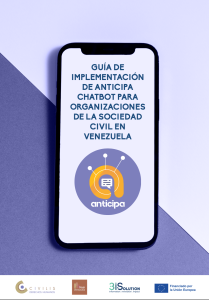Venezuela
Country Context
Ongoing Projects
Evidence-based decision-making (EVIDEM) Consortium in Venezuela
Objetive
Strengthen evidence-based decision-making in the humanitarian response in Venezuela through support in the production of reliable and accessible information products, and by enhancing the technical capacities of civil society organizations. The project, implemented by 3iS within the EVIDEM consortium, aims to provide tools, analysis, and timely data that enable humanitarian actors to respond in a more coordinated, efficient, effective, and people-centered manner.
EVIDesk
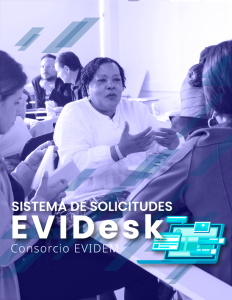
EVIDesk is a platform designed to efficiently manage service and product requests submitted by humanitarian actors who are part of the Humanitarian Country Team in Colombia.
The system enables real-time tracking of each request through a unique ticket number, ensuring traceability, transparency, and timely responses.
It also supports the evaluation of service use and relevance, contributing to more informed and coordinated decision-making.
Chatbot for people affected by gender-based violence in the state of Sucre, Venezuela.

LINA is a chatbot designed to prevent gender-based violence (GBV) and complement the work of humanitarian organizations through the use of accessible technology. Its purpose is to use Artificial Intelligence (AI) and deterministic models to identify profiles of vulnerable populations, provide key and timely information on care pathways and available services, and offer digital training on GBV and the risks associated with migration.
Through these actions, LINA seeks to strengthen the protection of vulnerable populations in the state of Sucre, Venezuela, against gender-based violence.

Objetive
Contribute to the prevention of gender-based violence (GBV) and the reduction of risks associated with migration through the use of accessible technology, providing key information, awareness-raising, and guidance to people in vulnerable situations, especially women, adolescents, and migrants.
Key elements
Approaches:
prevention of gender-based violence, reduction of migration risk, digital accessibility, gender-sensitive approach, characterization of vulnerable populations.
Implementation channel:
WhatsApp, available 24/7, with a secure and anonymous interface.
Contents:
- Four-module course on gender-based violence.
- Videos, infographics, and interactive maps with available services.
- Virtual assistant with accessible and inclusive language.
Priority population:
women, adolescents, migrants in high-risk areas (Sucre).
Key partnerships:
Diakonie Katastrophenhilfe and local implementing organizations (state of Sucre, Venezuela).
Past Performance
FORTALECIMIENTO DE CAPACIDADES A LAS ORGANIZACIONES DE SOCIEDAD CIVIL VENEZOLANAS EN MANEJO DE INFORMACIÓN PARA LA PREPARACIÓN ANTE DESASTRES (PD)
3iS tiene como objetivo fortalecer la Preparación para Desastres de las Organizaciones de la Sociedad Civil (OSC) a través de una estrategia de desarrollo de capacidades basada en una evaluación participativa de las necesidades de capacidades tanto de las OSC como de las comunidades.
Así, 3iS contribuirá a generar información de mejor calidad al apoyar a las OSC venezolanas para que tengan un enfoque más sostenible en la recopilación, análisis y difusión de datos, complementando los esfuerzos de HumVenezuela en el monitoreo y documentación de la Emergencia Humanitaria Compleja (EHC) venezolana, mejorando la gestión de la información de las organizaciones en la preparación para desastres, acciones anticipadas y rendición de cuentas a las poblaciones afectadas.
CONTEXTO
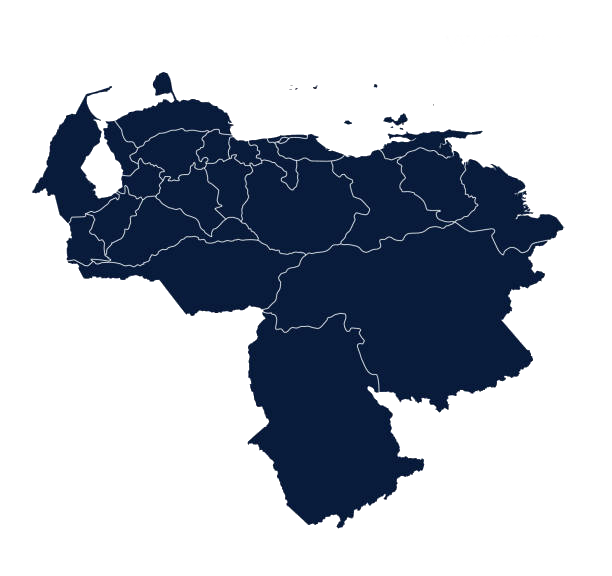
En el contexto de la Emergencia Humanitaria Compleja (EHC) en Venezuela, que persiste desde hace 8 años, el 60% de la población ha sido afectada por privaciones y riesgos significativos en diversos aspectos de sus vidas. Esta crisis se ha exacerbado debido a la inestabilidad política, el colapso institucional y la ruptura económica y social interna. La población también enfrenta riesgos de desastres aumentados, especialmente debido a eventos climáticos extremos. La falta de acceso a información pública y evaluaciones independientes ha limitado la respuesta humanitaria, incluida la preparación para desastres.
Las cifras indican que, entre 2020 y 2022, la población con necesidades humanitarias aumentó un 66%, afectando a 19.7 millones de personas hasta marzo de 2022, y al menos el 55% enfrenta privaciones severas en múltiples sectores. Además, la población desplazada aumentó un 25%, alcanzando los 7.7 millones de venezolanos fuera del país para agosto de 2023, según datos de la plataforma R4V.
COORDINACIÓN CON OXFAM
3iS coordina todas las acciones con Oxfam y organizaciones nacionales e internacionales y, a través del consorcio, tiene como objetivo empoderar a las OSC nacionales para que sean reconocidas como canales legítimos de comunicación entre las comunidades y el sistema de coordinación.
Fortalecer la capacidad de las organizaciones de la sociedad civil en preparación para desastres, respuesta, monitoreo, indicadores de asistencia humanitaria, abogacía y toma de decisiones.
Mejorar las capacidades de las organizaciones de la sociedad civil para prepararse, responder, participar e influir en la preparación para desastres.
Se espera que apoye a las OSC para que sean reconocidas como canales legítimos de participación entre las comunidades y el sistema de coordinación humanitaria y como interlocutores y mediadores ante el estado venezolano y la comunidad internacional, incluidos los temas de preparación para desastres.
